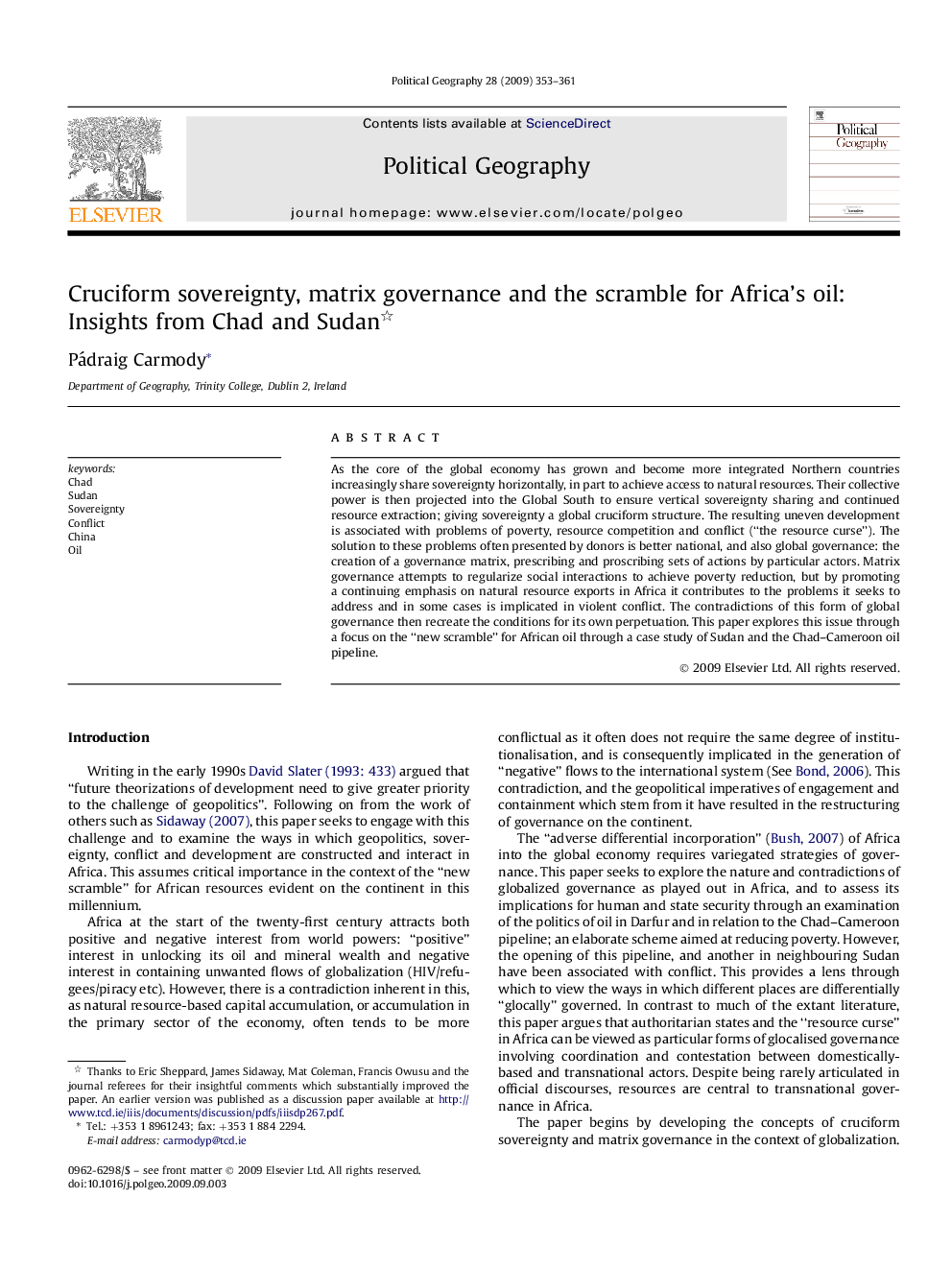| Article ID | Journal | Published Year | Pages | File Type |
|---|---|---|---|---|
| 1062230 | Political Geography | 2009 | 9 Pages |
As the core of the global economy has grown and become more integrated Northern countries increasingly share sovereignty horizontally, in part to achieve access to natural resources. Their collective power is then projected into the Global South to ensure vertical sovereignty sharing and continued resource extraction; giving sovereignty a global cruciform structure. The resulting uneven development is associated with problems of poverty, resource competition and conflict (“the resource curse”). The solution to these problems often presented by donors is better national, and also global governance: the creation of a governance matrix, prescribing and proscribing sets of actions by particular actors. Matrix governance attempts to regularize social interactions to achieve poverty reduction, but by promoting a continuing emphasis on natural resource exports in Africa it contributes to the problems it seeks to address and in some cases is implicated in violent conflict. The contradictions of this form of global governance then recreate the conditions for its own perpetuation. This paper explores this issue through a focus on the “new scramble” for African oil through a case study of Sudan and the Chad–Cameroon oil pipeline.
